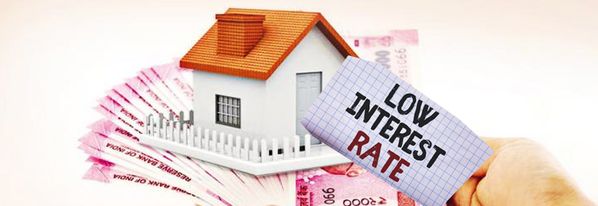A loan against property is a secured loan that allows a borrower to pledge their property as collateral. The lender will evaluate the value of the property and offer a loan amount up to a certain percentage of the property’s value. The borrower can use this loan amount for a variety of purposes such as funding their children’s education, expanding their business, or even for medical emergencies.
Interest rates are an important factor to consider when taking out a loan against property. Loan against property rates can vary significantly depending on various factors such as the loan amount, the borrower’s credit score, the property’s value, the loan tenure, and the lender’s policies.
Understanding the intricacies of loan against property rates is important to ensure that you get the best deal on your loan. In this article, we will decode loan against property rates to help you make smart investments.
Factors that affect Loan Against Property Rates
1. Loan Amount:
The loan amount is the primary factor that affects loan against property rates. Lenders will offer lower interest rates for larger loan amounts, as these loans are considered less risky due to the higher collateral value.
2. Property value:
The value of the property is crucial in determining the loan against property rates. Lenders usually offer loans up to 60% – 70% of the property’s value. The higher the value of the property, the higher the loan amount, and lower the interest rates.
3. Tenure of the loan:
The tenure of the loan is an essential consideration when taking out a loan against property. Lenders usually offer tenure periods from 5 to 20 years, depending on the borrower’s credit score and repayment capacity. Longer tenures generally come with higher interest rates, while shorter tenures have lower rates.
4. Credit History:
Credit history is an important factor when it comes to loan against property rates. Lenders evaluate the borrower’s credit score and repayment history to determine their creditworthiness. A good credit score and a clean repayment history can help borrowers get lower loan against property rates.
5. Lender’s policies:
Lenders have their own policies that determine the interest rates for loan against property. The interest rates can vary significantly from one lender to another, making it crucial for borrowers to compare lenders before applying for a loan.
Types of Loan Against Property Rates
1. Fixed Interest Rate:
A fixed interest rate remains constant throughout the tenure of the loan. This type of interest rate provides certainty to the borrower about the monthly installments, allowing them to plan other expenses accordingly.
2. Floating Interest Rate:
A floating interest rate fluctuates with the changes in the market conditions. This type of interest rate can be beneficial when market conditions are favorable, but it can also result in higher EMIs during inflationary periods.
3. Hybrid Interest Rate:
As the name suggests, hybrid interest rates are a combination of fixed and floating interest rates. This type of interest rate offers fixed rates for a specific period, usually 3 to 5 years, after which the interest rates switch to a floating rate.
Financial Tips for Smart Investments with Loan Against Property
1. Determine the Loan Amount Carefully:
Borrowers must determine the loan amount carefully based on their repayment capacity and financial goals. Borrowing more than necessary can result in higher EMIs and may become difficult to repay.
2. Evaluate the Lender’s Policies:
Comparing the lenders’ policies can help borrowers get the best deal on their loan against property. Borrowers must evaluate the lender’s interest rates, processing fees, prepayment penalties, and other charges before making a decision.
3. Maintain a Good Credit Score:
A good credit score is essential in getting lower loan against property rates. Borrowers must maintain a healthy credit score by paying their bills on time, avoiding high credit utilization, and correcting errors on their credit report, if any.
4. Consider the Tenure Carefully:
Borrowers must consider the tenure carefully, keeping in mind their financial goals and repayment capacity. Longer tenures can reduce the EMI amount, but the total interest paid might be higher. Shorter tenures can increase the EMI amount, but the total interest paid might be lower.
5. Use the Loan Amount Wisely:
Borrowers must use the loan amount wisely to achieve their financial goals, whether it’s for funding education expenses, expanding their business, or investing in real estate. Proper utilization of the loan amount can help borrowers reap the benefits in the long run.
In conclusion, loan against property rates can be complex and overwhelming, but understanding the factors that affect them can help borrowers make smart investments. Borrowers must compare lenders, evaluate the interest rates, consider the tenure carefully, maintain a good credit score, and use the loan amount wisely to maximize the benefits of their loan against property. With the right strategy, borrowers can unlock the benefits of a loan against property and achieve their financial goals.



